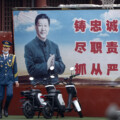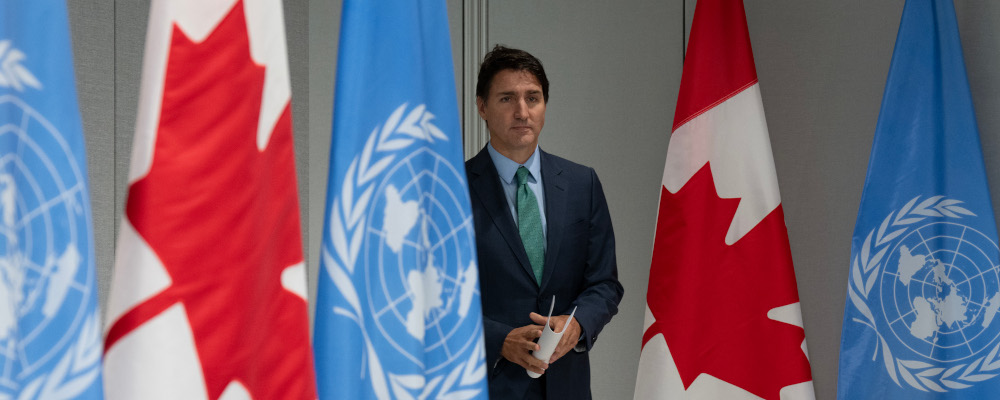As the United Nations General Assembly convened this fall, it yet again was a stark reminder of the challenges that multilateral institutions face—and further motivation for Canada to reshape its role in the world.
The UN, which was founded with high hopes of driving global peace and cooperation, has often been hampered by its very structure. Authoritarian adversaries, notably China and Russia, exploit their significant roles on the UN Security Council to often subvert the very fundamentals of international order.
The recent hostilities in Gaza are another example of the failure of the UN system. Not only have the terror attacks against Israel by Hamas shown the UN to be largely irrelevant, but it may just have solidified the end of “naïve globalism.” We can no longer assume that the political differences within these multilateral systems are negligible.
The geopolitical landscape has undeniably transformed in the past decade. There’s mounting tension between the West and its key Asian allies and an emerging authoritarian axis comprising China, Russia, and Iran. Add the rise of the Global South—powerhouses like India and Brazil attempting to tread the middle ground—and the result is multilateral organizations that often remain ineffective in addressing global challenges.
For Canada, this presents a dilemma. While our nation has always been an advocate of multilateralism, these platforms no longer consistently advance our interests or reflect our values. Neither do they serve the needs of the most vulnerable in the world.
An emerging trend is the rise of issue-based groupings of like-minded states. Minilateral arrangements such as the Quadrilateral Security Dialogue and AUKUS are the hallmarks of the current geopolitical era. This “minilateralism” isn’t about sidelining multilateralism but reshaping it. It’s about banding together with aligned interests to make significant strides where larger platforms have stumbled.
Canada needs to pivot its approach. While there’s pride in our traditional image of being a cooperative country, the reality is that trying to be everywhere often means being nowhere. Neither our allies nor our foes are buying what we’ve got to sell, and by all accounts we currently don’t seem to have much to offer.
With limited resources, we must take a discerning stance on where to invest Canada’s energies and make sure that the intended results are achieved. We owe this to Canadians and to the rest of the world, especially the most vulnerable in the Global South.
Multilateralism for its own sake shouldn’t be our North Star. The desire to merely be seen, to uphold the status quo, and the fetishization of dialogue, needs a re-evaluation. Our guiding light must be advancing Canadian interests in concert with addressing global issues.
In the quest for a refreshed approach, the role of civil society organizations can’t be underestimated. Beyond a government-led agenda, our global engagements should tap into the expertise of civil societies, faith-based organizations, diaspora communities, and the private sector. Their grassroots connections, especially with countries of the Global South, can pave the way for more fruitful partnerships and a more holistic global view.
But the onus isn’t just on policy changes—it’s also about making the case for a new approach to the Canadian people. Gone should be the days of obscure bureaucrat-speak and empty platitudes.

Policymakers owe it to Canadians to articulate a compelling case for renewed and focused global cooperation. This includes a frank assessment of which groupings no longer serve our strategic interest, or whose evolution has outgrown Canadian participation.
Additionally, duplicate mandates with global institutions need to end. Most Canadians would agree that we no longer need to be a member of the European Bank for Reconstruction and Development, where Canadian capital is going to support oil and gas investment in Turkey and Russia. Nor should we remain in the Asian Infrastructure Investment Bank a.k.a. the Chinese bank for global influence.
As the UN once again shows itself to be irrelevant on things that matter, it should be a reflective moment for Canada. It’s time to transition from a passive adherence to age-old habits to a clear-eyed, purposeful strategy for global cooperation.
It’s not about discarding our history but enhancing it, carving a path that prioritizes our nation’s interests while collaboratively addressing the world’s shared challenges. It’s time for Canadian global cooperation that is fit for purpose; it’s time for intention over convention.
Recommended for You

‘Crooks, crackpots, cowards’: David Frum on the Trump administration chaos consuming American foreign and economic policy

David Mulroney: In the midst of Trump’s Trade War, Canada must not take its eye off enemy number one: China

Kelden Formosa: A pope for the once and future church

‘The power to impose tariffs at will needs to be removed from Trump’: David Frum on Trump’s disregard of the courts and how the trade war tremors will affect the U.S. economy



